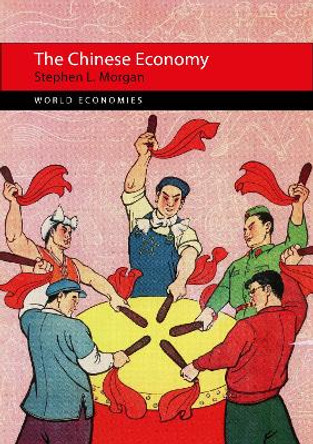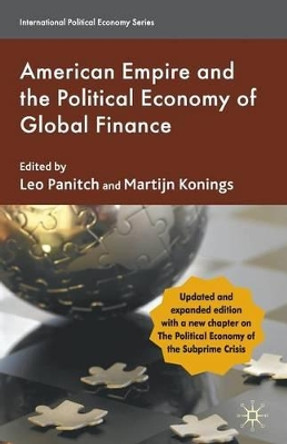Description
Examines China's overseas financial investments in the developing world, and its impact on national economic policymaking in the Americas.
About the Author
Stephen B. Kaplan is Associate Professor of Political Science and International Affairs at George Washington University. He is the author of Globalization and Austerity Politics in Latin America (Cambridge, 2013).
Reviews
'The best treatment of the political economy of China-Latin America finance to date. Kaplan shows how China's 'patient' capital in Latin America may have the potential to support the region's long-term development goals - in contrast with the volatile and conditional finance from the West. Kaplan shows that Latin American countries and China alike are climbing a learning curve to maximize the benefits and minimize the risks associated with their burgeoning economic relationship, while the United States sits puzzled and increasingly alarmed.' Kevin Gallagher, Boston University
'A valuable contribution to the burgeoning literature on China and Latin America. Kaplan argues that Chinese finance has a long-term approach and greater risk tolerance than Western capital. This enables Latin American governments to pursue their preferred development policies while avoiding the damaging cycles that have typified in the region. Both scholars and policymakers will benefit from reading the book.' Barbara Stallings, Brown University
'A must read for understanding the shifting role of China's international investment. Kaplan provides the most convincing and nuanced analysis for understanding the evolution of China-Latin American interconnections and their potential trajectory as part of a larger Chinese strategy of international influence. This impressive book is crucial for scholars of both Latin American politics and international political economy. It will reshape our understanding of Latin American political economy and Chinese soft international power.' Maria Victoria Murillo, Columbia University
'Kaplan employs new loan data and hundreds of interviews to understand the costs and benefits of Chinese credit. His analysis suggests that Chinese policy banks' longer time horizons and looser regulatory structures free borrowing governments from fiscal constraints and policy conditions. In exchange, borrowing governments offer a range of commercial concessions to their Chinese creditors, while also risking unsustainable debt burdens. This book offers important insights for anyone interested in the contemporary sovereign financing landscape.' Layna Mosley, Princeton University
'Globalizing Patient Capital is a rich resource for scholars and policy makers who are interested in how China is reshaping the financial landscape in Latin America and the developing world in general and how Chinese loan recipients are also learning how to negotiate with China as a creditor ... this book offers a deeper understanding of China's growing financial influence in the world.' Victoria Chonn Ching, Perspectives on Politics
'... Kaplan presents an in-depth, carefully reasoned assessment of the sudden burst in Chinese lending to Latin American governments.' Richard Feinberg, Foreign Affairs
Book Information
ISBN 9781316632048
Author Stephen B. Kaplan
Format Paperback
Page Count 300
Imprint Cambridge University Press
Publisher Cambridge University Press
Weight(grams) 580g
Dimensions(mm) 228mm * 150mm * 22mm









